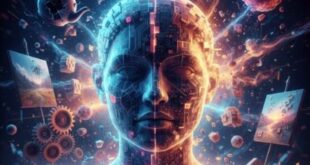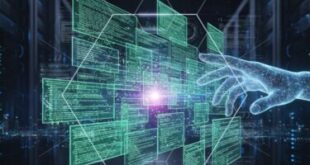The Web 3.0 era is here, where machines are equipped with artificial intelligence and machine learning algorithms (AI) to “understand” human language and behave in our best interests.
AI is becoming increasingly important in the human resources sector. HR is concerned with creating, preserving, and enhancing interpersonal connections within a business. The continual requirement for human interaction in every HR procedure opens the door for the use of AI. The recruitment process, training delivery, and people analytics are all being revolutionised by AI. It is assisting HR professionals in cleverly automating routine processes while giving them more time to concentrate on more strategic tasks requiring human interaction.
Employers are looking to leverage artificial intelligence (AI) to enhance the employee experience. These are five ways that it is altering the function of HR.
1- Smart Recruitment
HR’s primary goal is to establish human connections between businesses and both current and potential employees. The use of scalable AI technology by HR departments is necessary for this to be accomplished on a broad scale. AI can help candidates transfer information from their resumes onto smart digital forms and more efficiently complete their applications so that new applicants should not need to reenter the same information over multiple steps of the new-hire journey. AI helps HRs analyze a candidate’s previous work experience and interests and match them with open roles best suited for them. AI is also involved in enabling HR teams to better understand employee referrals by looking into the kinds of candidates employees are referring to and gaining insight on who refers to the most successful ones. The use of AI in the hiring process has improved both the candidate experience and the effectiveness of the recruiters at the same time.
2- Cognitive-supporting Decision-making
Cognitive engines might really make it easier for professionals to reach important day-to-day judgements within the firm. It is possible to analyse an employee’s mood before and after a client call and determine whether the individual needs a break or can continue working. In order for employers to investigate the situation thoroughly and find a solution before it negatively impacts the team’s or the organization’s wellbeing, AI might also assist in identifying worry in an employee’s tone of voice. This is but one illustration; Human Resources can make use of comparable tools to handle many more related concerns.
3- Employee engagement
Daily evaluation and analysis of employee sentiment is a component of employee engagement. AI-powered chatbots give HR professionals and employees the ability to continue the engagement dialogue all year long. These interactions are then scrutinised and used to address the particular worries, desires, and requirements of the employee. But things don’t stop there. Just as important as the initial request for feedback is what happens afterwards in the interaction.
Modern HR departments are going to be particularly interested in Voice of Employee (VoE) analytics. Companies can use this to determine whether their employees have good or negative feelings about specific parts of their employment by analysing survey data or social media behaviour.
4- More Efficient Training and Development
Training programmes can use AI to customise the learning experience to the needs of the employees. It can be used in classes to gauge employee knowledge and suggest certain training courses to get them up to speed. It can also be used to sort through training analytics for the organisation to identify which staff require more training. Or, to assist in determining potential job choices based on training history and requirements.
Employees may focus on the skills they need to stay current in their area and learn more quickly with the help of the appropriate AI technologies.
5- Employee Retention
The way the HR department operates could be totally changed by artificial intelligence. AI is having an impact everywhere, whether it be in recruiting, employee engagement, communication, talent management, benefits evaluation, training, or learning.
AI can also help with staff retention, in addition. By examining data on salary scale, employee experience, attrition rate, time in role, performance, etc., it can identify potential employees who may leave the company. It can tell if they are looking for chances by looking at their browser habits, sent emails, and keystrokes. This paves the way for HR teams to investigate the potential reasons behind employee departures and take proactive steps to stop it from happening.
Despite all of its advantages, AI is not perfect. It still requires human programming, thus there is a chance for biases and mistakes. Technology might start to make your work environment feel remote and alienating if it is utilised too regularly to substitute normal human interactions. Human touch will therefore always be required in human resource functions.
(The above content is attributed to Sumit Sabharwal, CEO, TeamLease HRtech)
 Newspatrolling.com News cum Content Syndication Portal Online
Newspatrolling.com News cum Content Syndication Portal Online







